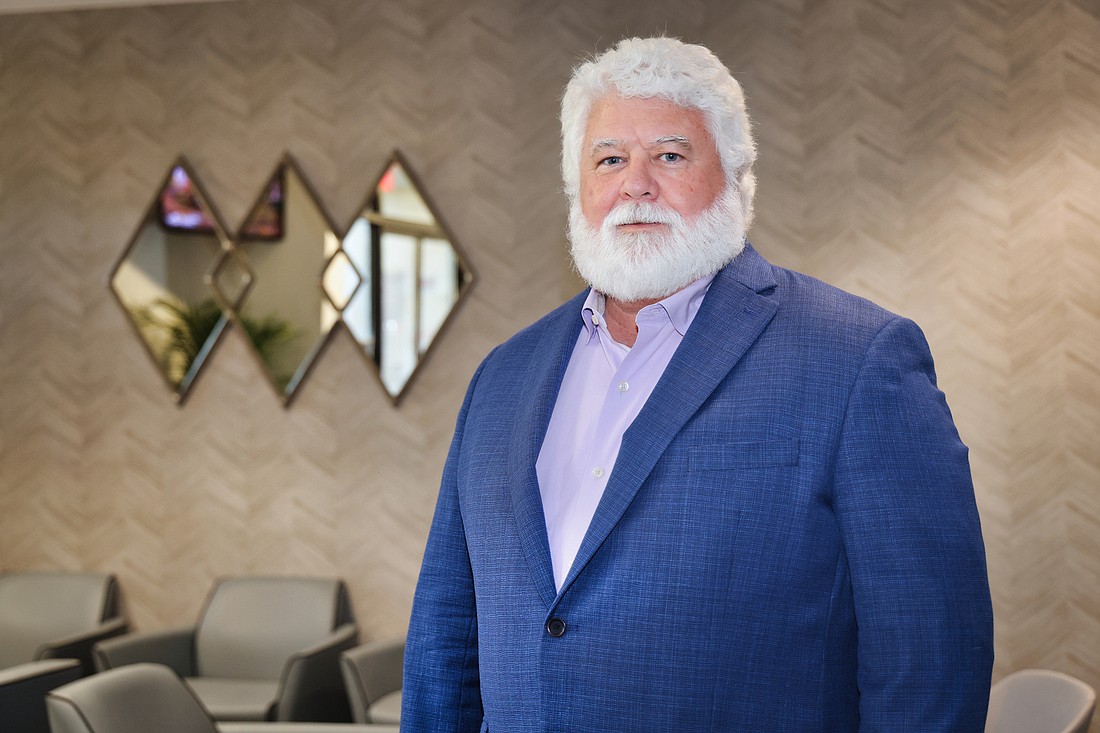- November 26, 2024
-
-
Loading

Loading

The legal cannabis industry keeps expanding. And Green Check Verified keeps growing right alongside it.
The Bonita Springs-based fintech firm founded in 2017 harnesses the power of data and technology to connect financial institutions and legal cannabis businesses in need of banking services — and keep up with all the rules and regulations required to do so. “The challenge for both sides of the industry has been a supply and demand problem,” says company founder Kevin Hart. “Our focus when we launched Green Check Verified was to solve the supply problem. There weren’t enough banks and credit unions willing to serve the cannabis industry.”
Green Check Verified now works with more than 4,500 legal cannabis businesses in 39 states plus Guam and Saipan. About $425 million a month is currently being verified through the platform and distributed to the more than 120 financial institutions that work with the company. “On average we add 25 to 30 [financial institutions] per quarter,” says Hart, 63.
To keep up with that growth, Green Check Verified has added key members to its staff of more than 40. That includes naming Paul Chesek chief growth officer in late June.
“We needed someone who was going to be able to oversee not only our organic growth but the inorganic growth,” says Hart. “Paul has that experience to tie both of these together.”
Also, in September, Green Check Verified announced its acquisition of PayQwick, a California company offering banking-related services to the cannabis industry since 2015. “The acquisition gives us an opportunity to go and market directly to the entire cannabis industry and connect them to that network of supply,” says Hart. “We’ve developed the connectivity tissue to enable every cannabis business to never hear ‘no’ about banking again.”
New Green Check team members also include Staci Firios as chief marketing officer and Brett Puffenbarger as vice president of marketing for the cannabis division. “Staci came to us from many years of working with high-growth companies in fintech,” says Hart. “Brett is someone who understands the [cannabis] industry’s pain points and how to work with the cannabis industry directly, which is very important. Banks and the cannabis industry don’t necessarily speak the same language.”
The company also racked up a number of significant accolades in 2022. It was named a “soon to be Unicorn” by startup research firm Tracxn and ranked the No. 3 Best Place to Work in Fintech in 2022 by American Banker. Hart was also recognized as the top compliance leader for cannabis banking solutions at the annual PBC Conference focused on payments, banking and compliance in the cannabis industry.
“Any time you can get third-party attestation as to who you are and what you do, it’s very helpful,” says Hart. “We know what we do, and we stand behind what we do and see all the client stories that are out there. But when you are recognized by an industry association, recognized by your peers, and recognized by your clients, that says a lot.”
Hart continues to watch for movement on the SAFE Banking Act, which would protect banking institutions that provide services to legitimate cannabis-related businesses in accordance with state laws. It’s passed the House of Representatives. But he’s not holding his breath.
Even without that piece of legislation, he expects Green Check Verified’s sales and revenue to double in 2023, as well as the number of cannabis businesses it works with. Market forecasts help support that optimistic outlook. Cannabis market research firm BDSA, for example, expects legal cannabis sales in the U.S. to hit $27 billion by the end of 2022 and $42 billion in 2026.
“We’re obviously going to have to pay close attention to make sure that, operationally, we continue with the benchmarks we have set in the industry with our partner clients,” says Hart. “We have to continue to keep one eye and one ear open on what’s going on in Washington.”
He believes financial institutions will keep coming on board as the industry becomes more educated about funds out there to be banked. “As we continue to grow our core business and as cannabis grows from an industry perspective, we’re seeing an elevation in who is raising their hand and who is getting involved in the space,” says Hart. “It’s not just community banks; it’s not just small service providers. Bigger companies are looking at this because of the sheer size of the market.
“They’re looking at $400-plus, $500-plus millions of dollars a month and billions of dollars a year flowing through the platform,” he adds, “and people are interested in that.”